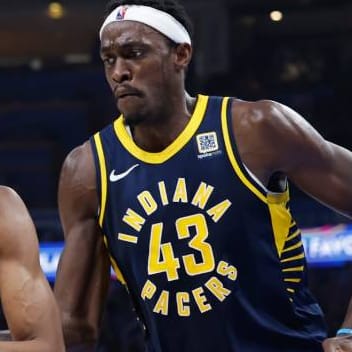This article is part of our NBA Draft Kit series.
The way a head coach divies out playing time can become that coach's defining trait. Everyone knows Tom Thibodeau stretched the boundaries of acceptable usage of star players, and it was a big reason why he lost his job with the Bulls after the 2014-15 season. Gregg Popovich may go down as the best NBA coach of all time, and his defining characteristic in terms of strategy might be his refusal over the past decade to overuse star players.
For fantasy purposes, the best coaches are those who fit in between Thibodeau's negligent overuse that can lead to injuries and Popovich's flawless conservation of his best players so that they are as healthy as possible in the postseason. Broadly speaking, a player who gets at least 30 minutes per game will be useful in most fantasy formats because it's hard to see that much playing time and not rack up valuable counting stats.
Every coach has a style in terms of how they deploy players, and in this article all 30 NBA coaches are ranked based on past tendencies with regard to that crucial 30-mpg threshold. Only each coach's last five seasons as a head coach were factored into these averages, as a coach's style can change over time. In addition to the average number of players a coach allows to cross certain minutes thresholds, pace and three-point field goal attempts were also calculated as those numbers can be useful when targeting players on certain teams.
Note: Only players that
The way a head coach divies out playing time can become that coach's defining trait. Everyone knows Tom Thibodeau stretched the boundaries of acceptable usage of star players, and it was a big reason why he lost his job with the Bulls after the 2014-15 season. Gregg Popovich may go down as the best NBA coach of all time, and his defining characteristic in terms of strategy might be his refusal over the past decade to overuse star players.
For fantasy purposes, the best coaches are those who fit in between Thibodeau's negligent overuse that can lead to injuries and Popovich's flawless conservation of his best players so that they are as healthy as possible in the postseason. Broadly speaking, a player who gets at least 30 minutes per game will be useful in most fantasy formats because it's hard to see that much playing time and not rack up valuable counting stats.
Every coach has a style in terms of how they deploy players, and in this article all 30 NBA coaches are ranked based on past tendencies with regard to that crucial 30-mpg threshold. Only each coach's last five seasons as a head coach were factored into these averages, as a coach's style can change over time. In addition to the average number of players a coach allows to cross certain minutes thresholds, pace and three-point field goal attempts were also calculated as those numbers can be useful when targeting players on certain teams.
Note: Only players that played in one-third of a team's games were factored in and, when possible, I avoided taking into account seasons when a coach took over or got fired halfway through the season.
First Tier: 5.0 - 4.0 players getting 30+ mpg

Mike Budenholzer, third season, all with Atlanta
Rotation trends over last 1-5 seasons as head coach: 30+ mpg: 5.0 players per season, 24+ mpg: 5.5 players per season
Most minutes in 2014-15:Paul Millsap (32.7 mpg)
Offensive trends over last 1-5 seasons as head coach: Pace: 94.3 (93.9 last season, league rank - 15th), 3Pt FG attempted per game: 26.0 (26.2 last season, league rank - 7th).
Projected movement:Slightly Down
If DeMarre Carroll were still on this team it would be pretty open and shut. The five starters would all project to get 30-plus minutes and the reserves would lack utility in most formats. However, with Carroll gone, there appears to be a pretty good chance for coach Bud's spot atop the Coaching Tiers to be short lived. After Jeff Teague, Kyle Korver, Paul Millsap and Al Horford, it seems Thabo Sefolosha has the next best chance to get 30 minutes, but he's hardly the player Carroll is, as seasoned fantasy owners know all too well. Dennis Schroder should be in the 24-30 minute range and will certainly offer more in fantasy than Sefolosha. If Schroder were on a team with a lesser starting point guard, or a more physical point guard, he could push for 30-plus minutes, and he may still be a breakout candidate this year off the bench. Tim Hardaway Jr. seems like a poor fit as a Carroll replacement, and is more likely to see around 25 minutes as a gunner off the bench.

Terry Stotts, eighth season, fourth with Portland
Rotation trends over last 1-5 seasons as head coach: 30+ mpg: 4.6 players per season, 24+ mpg: 5.8 players per season
Most minutes in 2014-15:Damian Lillard (35.7 mpg)
Offensive trends over last 1-5 seasons as head coach: Pace: 92.8 (94.2 last season, league rank - 12th), 3Pt FG attempted per game: 22.0 (27.2 last season, league rank - 3rd).
Projected movement:Down
What a difference a year makes. Last year Stotts was a lock to be one of the most fantasy-friendly coaches out there, as his starting five was rock solid. However, that will all change this season. He has always adapted to his roster, and the Blazers are a team in transition. It would seem that C.J. McCollum, Al-Farouq Aminu, Meyers Leonard and Mason Plumlee will start at the two, three, four and five, respectively, but none of those guys has ever played 30 minutes per game, so it's a little hard to confidently project any of them to cross that threshold this season. Aminu probably has the best chance to get there, as he is a clear upgrade over his backup, whether that is Allen Crabbe or Maurice Harkless. In the cases of McCollum, Leonard and Plumlee, there are players behind them who could be seen as lateral options in Stotts' eyes, at least for certain stretches of the season. In the end, Damian Lillard is the only sure bet to get 30-plus minutes, with Aminu being the second most likely candidate.

Dave Joerger, third season, all with Memphis
Rotation trends over last 1-5 seasons as head coach: 30+ mpg: 4.5 players per season, 24+ mpg: 5.5 players per season
Most minutes in 2014-15:Marc Gasol (33.2 mpg)
Offensive trends over last 1-5 seasons as head coach: Pace: 91.0 (92.0 last season, league rank - 26nd), 3Pt FG attempted per game: 14.6 (15.2 last season, league rank - 29th).
Projected movement: Holding Steady
Joerger has had a very stable core to work with during his tenure in Memphis, and once again, the team looks very similar heading into the 2015-16 season. Courtney Lee and Jeff Green each just barely crossed the 30-mpg threshold last season, and even if they don't quite make it this year, they should each be at 28-plus mpg. Of course, Marc Gasol, Zach Randolph and Mike Conley should each clear 30 mpg with ease. The big ding on Joerger from a fantasy standpoint is not his usage patterns but his style of play. Obviously he is doing the best he can with the pieces he has to work with, but look for the Grizzlies to once again make a run at finishing in the bottom five in pace and three-point attempts this season.

Flip Saunders, 18th season, second season of second stint with Minnesota
Rotation trends over last 1-5 seasons as head coach: 30+ mpg: 4.4 players per season, 24+ mpg: 6.0 players per season
Most minutes in 2014-15:Andrew Wiggins (36.2 mpg)
Offensive trends over last 1-5 seasons as head coach: Pace: 90.8 (94.4 last season, league rank - 11th), 3Pt FG attempted per game: 15.3 (14.9 last season, league rank - 30th).
Projected movement:Down
The Timberwolves' minutes distribution this season is pretty hard to predict. Saunders has five veterans he will probably insist on incorporating, and he also has seven young players who need to get somewhat-consistent minutes. Of those 12 players, Andrew Wiggins is really the only surefire lock to see 30-plus minutes. Kevin Martin and Karl-Anthony Towns have a pretty good chance to get there as well, but it should not be seen as a one-to-one correlation that Towns will get there just because Wiggins did last year. Wiggins was not facing any real competition for minutes on the wing, whereas Towns will share frontcourt minutes with Nikola Pekovic, Gorgui Dieng and Kevin Garnett. He also averaged just 21.1 mpg as a freshman at Kentucky last year, so conditioning for the 82-game season could be an issue in his rookie year. Young big men also often struggle with foul trouble, so that could also be a factor. In the end, the smart money still appears to be on Wiggins, Martin and Towns all eclipsing 30 mpg this year, but there are so many players in the mix that it is hard to predict with much confidence. This seems like the year Ricky Rubio falls from the 30 mpg mix, as Andre Miller and Tyus Jones join Zach LaVine in the hunt for minutes at the point, and Rubio is certainly not without his warts. The other three players who seem to be hurt most by the T-Wolves' increased depth are Pekovic, Dieng and Shabazz Muhammad, as all three can be pretty effective on a per-minute basis, but they should all fall short of the 30-mpg plateau this season.
General manager Milt Newton said that the team does not anticipate much to change in the team's philosophy while Sam Mitchell fills in for Saunders, who is currently being treated for Hodgkin's Lymphoma.

David Blatt, second season, all with Cleveland
Rotation trends over last 1-5 seasons as head coach: 30+ mpg: 4.0 players per season, 24+ mpg: 7.0 players per season
Most minutes in 2014-15:Kyrie Irving (36.4 mpg)
Offensive trends over last 1-5 seasons as head coach: Pace: 92.3 last season, league rank - 25th, 3Pt FG attempted per game: 27.5 last season, league rank - 2nd.
Projected movement: Holding Steady
The Cavaliers may have the best team in the Eastern Conference, but they will provide fantasy owners with more headaches than one might expect this season. First, Kyrie Irving (knee) could be out until January, so Mo Williams will be useful, but only for a month or two. Upon Irving's return, he may be strategically rested to help ease the stress on his knee. Kevin Love and Timofey Mozgov are also returning from injuries and Anderson Varejao always seems to be dealing with something. Iman Shumpert and J.R. Smith should see just enough minutes to be on the radar all season, but not quite enough to be surefire fantasy assets. The two-week vacation LeBron James took in the middle of last season worked so well that it would be hard to imagine him not opting for something similar again this season. In addition, the potential for this team to have home court advantage locked up in the Eastern Conference while fantasy leagues are still going opens the door for gratuitous resting of key players down the stretch. All told, it seems like the safest Cavalier to own in fantasy leagues this year might be Tristan Thompson. He obviously doesn't have the upside of Irving, Love and James, but he should be predictably steady, which is an underrated quality in players who get selected in the middle rounds of drafts. While Blatt's team finished second in three-point attempts last season, the potential for them to finish bottom five in pace limits the positive effect of Blatt's scheme for fantasy purposes. The key statistic with the Cavs' top players won't be minutes per game, but rather games played -- a stat that is far tougher to predict -- which makes this a team savvy fantasy owners might largely avoid.
Second Tier: 3.8 - 3.2 players seeing 30+ mpg

Lionel Hollins, ninth season, second with Brooklyn
Rotation trends over last 1-5 seasons as head coach: 30+ mpg: 3.8 players per season, 24+ mpg: 5.4 players per season
Most minutes in 2014-15:Joe Johnson (34.9 mpg)
Offensive trends over last 1-5 seasons as head coach: Pace: 91.5 (92.7 last season, league rank - 24th), 3Pt FG attempted per game: 14.0 (19.9 last season, league rank - 20th).
Projected movement:Slightly Up
If Deron Williams was still on this team it would have to be considered the mail-it-in All-Stars from the top of the organization on down. Even without Williams, however, Hollins should still approach this season with a good amount of apathy. Think of it like a baseball manager on a losing team who just turns in the same lineup card every day as the team goes through the motions. Jarrett Jack, Joe Johnson, Thaddeus Young and Brook Lopez will all see 30-plus mpg quite easily, and it will be hard for anyone else to be fantasy relevant in standard formats. Nets fans may hate watching this team, but it should be pretty easy for fantasy owners to extract value, as there is no shine left on those four players, meaning they could all go for bargains on draft day.

Doc Rivers, 17th season, third with Los Angeles
Rotation trends over last 1-5 seasons as head coach: 30+ mpg: 3.8 players per season, 24+ mpg: 6.2 players per season
Most minutes in 2014-15:Blake Griffin (35.2 mpg)
Offensive trends over last 1-5 seasons as head coach: Pace: 92.6 (94.7 last season, league rank - 10th), 3Pt FG attempted per game: 19.3 (26.9 last season, league rank - 5th).
Projected movement:Slightly Up
The Clippers went from having a big hole at small forward last season to having three qualified options after the additions of Paul Pierce, Josh Smith and Lance Stephenson this offseason. That said, there should be no debating who the starter is out of that trio. Pierce gives the Clippers perhaps the best starting five in the league, but he certainly won't be joining Chris Paul, J.J. Redick, Blake Griffin and DeAndre Jordan in the 30-plus mpg club. The veteran small forward only played 26.2 mpg for the Wizards last season, and he should hover around that number again this season. Smith gives the Clippers a quality backup at both forward spots, and while he should be in the 24-28 mpg range, he will usually be the third or fourth option on offense, which will make it difficult for him to be useful in standard leagues. Similarly, the added options on the wing will make it difficult for Jamal Crawford not to regress and have his least productive fantasy season in over a decade. Stephenson would likely need an injury or two to get much more than 20 mpg.

Kevin McHale, seventh season, fifth with Houston
Rotation trends over last 1-5 seasons as head coach: 30+ mpg: 3.8 players per season, 24+ mpg: 6.4 players per season
Most minutes in 2014-15:James Harden (36.8 mpg)
Offensive trends over last 1-5 seasons as head coach: Pace: 94.4 (96.5 last season, league rank - 2nd), 3Pt FG attempted per game: 25.4 (32.7 last season, league rank - 1st).
Projected movement:Down
The team that shot the most three-pointers in the league last season and finished second in pace added Ty Lawson as their point guard this offseason, so fantasy owners should be lining up to have a field day with the Rockets in 2015-16. In fact, the Rockets' roster might be a little overqualified. That said, power forward is the only position where it's unclear who the best player is. Donatas Motiejunas played 28.7 mpg and Terrence Jones saw 26.9 mpg last season, and something similar should ensue this season, which will allow both players to be useful in almost all formats. Lawson, James Harden, Trevor Ariza and Dwight Howard are each the unquestioned starters at their positions, and all but Howard should be in line for 30-plus minutes again. Howard's 29.8 mpg last season signifies where his career is headed, as he transitions to a Dirk Nowitzki/Tim Duncan-esque role where his per-minute production is off the charts but it's best for the team's long-term goals if he no longer plays superstar-level minutes. The projected movement here is down, but there will be at least six players on the roster who should be owned in almost all formats, which makes them an elite fantasy team, despite the fact that only three players project to average 30-plus minutes.

George Karl, 27th season, second with Sacramento
Rotation trends over last 1-5 seasons as head coach: 30+ mpg: 3.6 players per season, 24+ mpg: 6.2 players per season
Most minutes in 2014-15:Rudy Gay (35.4 mpg)
Offensive trends over last 1-5 seasons as head coach: Pace: 95.0 (95.4 last season, league rank - 8th), 3Pt FG attempted per game: 18.8 (16.5 last season, league rank - 28th).
Projected movement:Slightly Up
It seems like a clerical error that Basketball Reference says Karl coached 30 games for the Kings last season. Does anyone remember this? Is there footage? Anyway, this is already a very rocky marriage, and given the mess that is the Kings' front office, it would not be surprising if Karl gets canned before the end of the season. This team is just a mess. DeMarcus Cousins is obviously a stud and a lock to see 30-plus minutes, but there is potential for things to get so bad between he and Karl that Cousins has a stretch or two where he is not playing for some bizarre reason. Rudy Gay probably shouldn't be leading any team in minutes, but he could certainly do that again this year. Rajon Rondo's relationship with Karl could go in any direction, but even if everything is kosher, he is now a low-end fantasy point guard based solely on per-minute production. That said, Rondo and shooting guard Ben McLemore should join Cousins and Gay in the 30-mpg club, leaving plenty of counting stats available to fantasy owners who target the Kings' top-four players. Kosta Koufos should get more burn at center than rookie Willie Cauley-Stein, but neither should see much more than 26 mpg.

Stan Van Gundy, 10th season, second with Detroit
Rotation trends over last 1-5 seasons as head coach: 30+ mpg: 3.6 players per season, 24+ mpg: 6.0 players per season
Most minutes in 2014-15:Josh Smith (32.0 mpg)
Offensive trends over last 1-5 seasons as head coach: Pace: 91.5 (92.8 last season, league rank - 22nd), 3Pt FG attempted per game: 26.2 (24.9 last season, league rank - 11th).
Projected movement:Slightly Down
Van Gundy is one of the few coaches who comes across as believable when he says he will incorporate a strict meritocracy with regard to playing time. With this in mind, fantasy owners should be wary about looking at preseason depth charts and banking minutes accordingly. Reggie Jackson and Andre Drummond are the only two players who look like locks to get 30-plus minutes. On most teams, Kentavious Caldwell-Pope and Ersan Ilyasova would have no chance at getting to that threshold, but on the Pistons it is a possibility. That said, both players will have an uphill battle to get there. Jodie Meeks could be better than Caldwell-Pope, and Marcus Morris could be better than Ilyasova. The safe bet is for Caldwell-Pope and Meeks to have close to an even split at shooting guard, but Brandon Jennings will eventually cut into both players' minutes once he is healthy. Stanley Johnson is the big wild card. It's possible he will be one of their three best players this year, and his versatility on the wing would then impact the minutes of Caldwell-Pope, Meeks, Morris and subsequently, Ilyasova. For this reason it seems wise not to reach on any of the non Jackson/Drummond Pistons, and draft them only if they are good value buys.

Jeff Hornacek, third season, all with Phoenix
Rotation trends over last 1-5 seasons as head coach: 30+ mpg: 3.5 players per season, 24+ mpg: 6.5 players per season
Most minutes in 2014-15:Eric Bledsoe (34.6 mpg)
Offensive trends over last 1-5 seasons as head coach: Pace: 96.1 (96.3 last season, league rank - 3rd), 3Pt FG attempted per game: 25.1 (25.0 last season, league rank - 10th).
Projected movement:Down
Until the situation with Markieff Morris (who was demanding a trade at the time of this posting) is resolved, it's very hard to evaluate how the minutes will be distributed in the frontcourt. The backcourt situation is much easier to suss out: Eric Bledsoe and Brandon Knight will both play 30-35 mpg and will offer plenty of fantasy value. Devin Booker has a chance to average more than two three-pointers per game in a reserve role, but there's also a chance he could be brought along slowly, so he may not be worth a late-round pick unless the league is pretty deep. This may be the year that T.J. Warren starts legitimately cutting into P.J. Tucker's minutes at the three, which would be great for fantasy owners, as few players offer less fantasy production per-minute than Tucker. However, if the Suns unload Morris and don't receive a power forward back in the deal, Tucker and Warren could start alongside each other at the two forward spots. Tyson Chandler has seen 30-plus mpg in four straight seasons, but that could come to an end this season if Alex Len is up for around 24 mpg, which he should be. In the end, Warren makes for a nice sleeper but the only two Suns to target with confidence are Bledsoe and Knight.

Mike Malone, third season, first with Denver
Rotation trends over last 1-5 seasons as head coach: 30+ mpg: 3.5 players per season, 24+ mpg: 6.0 players per season
Most minutes in 2014-15:Ty Lawson (35.5 mpg)
Offensive trends over last 1-5 seasons as head coach: Pace: 94.9 (95.4 last season, league rank - 8th), 3Pt FG attempted per game: 17.3 (16.5 last season, league rank - 28th).
Projected movement:Slightly Down
The Nuggets only have one returning player who saw 30-plus minutes per game last season: Wilson Chandler (31.7). There is no question that this is a team in transition, so Malone, who seems like an excellent coach, may opt to mix and match throughout the season. That said, Chandler and Kenneth Faried should exceed or come very close to exceeding 30 mpg this season, making them fairly safe fantasy options. Since the team is semi-rebuilding and won't realistically contend for a playoff spot, rookie Emmanuel Mudiay could surprise a lot of people and become one of the rare rookie point guards to play 30-plus mpg. Mudiay and Jusuf Nurkic are the two long-term building blocks on the roster, and while Nurkic isn't ready for that kind of workload, Mudiay might be up to the challenge. Nurkic, Danilo Gallinari and Randy Foye should all settle in the 20-26 mpg range, meaning they will be best reserved for deeper leagues.

Alvin Gentry, 13th season, first with New Orleans
Rotation trends over last 1-5 seasons as head coach: 30+ mpg: 3.4 players per season, 24+ mpg: 5.4 players per season
Most minutes in 2014-15:Anthony Davis (36.1 mpg)
Offensive trends over last 1-5 seasons as head coach: Pace: 93.4 (93.4 last season, league rank - 9th), 3Pt FG attempted per game: 19.2 (17.7 last season, league rank - 23rd).
Projected movement:Up
It's hard to say how much Gentry will be affected by what Steve Kerr did last year in Golden State, because Kerr's team was up by double digits in the fourth quarter so often that his key players' minutes-per-game skew lower than they might have if the Warriors were a 52-win team and not a 67-win team. For instance, Anthony Davis will definitely see more than the 32.7 mpg Stephen Curry saw last season, but he may fall short of last season's 36.1 mpg. That said, Davis could play 32 mpg and would still be the consensus No. 1 overall pick in almost all formats, so it's a moot point. We already know that Jrue Holiday will be on a minutes restriction, at least early in the season, as he works his way back from a serious leg/shin injury, so the safe money is on him seeing fewer than 30 mpg. However, he should still be pretty useful in most formats. Tyreke Evans and Eric Gordon seem like equally safe bets to exceed 30 mpg once again. Ryan Anderson will be the most interesting case, as he is undoubtedly the team's best three-point shooter, and after what Gentry witnessed with Golden State last season, he knows the value of the long ball. For this reason, Anderson may not only be poised for 30-plus minutes, but he could be the second most valuable fantasy asset on the team next season. Similarly, Gentry knows the value of limiting the playing time of the plodding, rim-protecting center, so Omer Asik might be fortunate to see much more than 20 mpg.
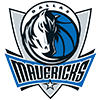
Rick Carlisle, 14th season, eighth with Dallas
Rotation trends over last 1-5 seasons as head coach: 30+ mpg: 3.2 players per season, 24+ mpg: 5.4 players per season
Most minutes in 2014-15:Monta Ellis (33.7 mpg)
Offensive trends over last 1-5 seasons as head coach: Pace: 93.1 (95.2 last season, league rank - 9th), 3Pt FG attempted per game: 22.4 (25.4 last season, league rank - 8th).
Projected movement:Down
Carlisle's value to fantasy owners has mirrored that of his best player, Dirk Nowitzki. Last season, Nowitzki played just 29.6 minutes per game, meaning just three Mavs saw 30-plus mpg and nobody played over 34. This season could be an all-time low for Carlisle and Nowitzki from a fantasy perspective. Chandler Parsons is recovering from a mysterious knee surgery, and there are rumors that he could miss much of the season. Wesley Matthews is also recovering from surgery to repair a torn Achilles, and while he is expected to be ready around the start of the season, the Mavs have already announced that he will be on a minutes restriction. Monta Ellis, a famously trustworthy fantasy option, was replaced by Deron Williams this offseason, making it possible that no Mavs guard will crack the 30-plus mpg threshold. Even if Williams (31.1 mpg last season) gets there, he has averaged 66 games per season over the past two years, so he won't be wholly reliable. Zaza Pachulia and Samuel Dalembert will split minutes at center, and the Mavs will likely employ a small ball lineup for stretches, so a 30-mpg player probably won't be coming from that position either. All told, this could be one of the worst teams from a fantasy perspective in 2015-16.
Third Tier: 3.0 players seeing 30+ mpg

Quin Snyder, second season, all with Utah
Rotation trends over last 1-5 seasons as head coach: 30+ mpg: 3.0 players per season, 24+ mpg: 5.0 players per season
Most minutes in 2014-15:Gordon Hayward (34.4 mpg)
Offensive trends over last 1-5 seasons as head coach: Pace: 90.4 last season, league rank - 30th, 3Pt FG attempted per game: 21.7 last season, league rank - 17th.
Projected movement:Up
Prior to Dante Exum's season-ending injury it would have been easy to predict some shuffling in the backcourt hierarchy going into the season, but now most people will assume Trey Burke is a lock for big minutes at the point. However, the present author has never been a fan of Burke's game, and has therefore found another player on the Jazz's depth chart who could emerge and prove to be an upgrade over the third-year chucker. Raul Neto, 23, is a 6-foot-4 Brazilian point guard with the passing gene that Burke will never have. He also has a better three-point shot than Burke and better defensive chops. The only thing in Burke's favor is that he has been in the NBA for two years while this will be Neto's rookie season. Burke's deficiencies and Neto's upside make it a pretty easy call for fantasy owners, given the presumed wide gap in ADP. Other than the uncertainty at point guard, the Jazz's roster is pretty straight forward. Alec Burks (33.3 mpg) and Gordon Hayward (34.4 mpg) should both be well over 30 mpg on the wing, and with Enes Kanter gone Derrick Favors (30.8 mpg) and, more notably, Rodney Hood (21.3 mpg) should see upticks in minutes, with Hood becoming relevant in deeper leagues. Rudy Gobert averaged 34.4 mpg after the All-Star break last year, so he should be a shoo-in to eclipse 30 mpg over a full season in his third year, and should be the most valuable fantasy option on the Jazz.
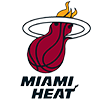
Erik Spoelstra, eighth season, all with Miami
Rotation trends over last 1-5 seasons as head coach: 30+ mpg: 3.0 players per season, 24+ mpg: 5.0 players per season
Most minutes in 2014-15:Chris Bosh (35.4 mpg)
Offensive trends over last 1-5 seasons as head coach: Pace: 91.0 (90.9 last season, league rank - 29th), 3Pt FG attempted per game: 19.6 (20.2 last season, league rank - 19th).
Projected movement:Up
The Heat would appear to have one of the most ironclad starting fives in the league. Chris Bosh (35.4 mpg), Goran Dragic (34.8 mpg) and Luol Deng (33.6 mpg) will all crack 30 mpg again this season with ease. Dwyane Wade (31.8 mpg) will probably also see over 30 mpg in the games he plays, but expecting more than 60 games out of Wade is a fool's errand, as he has averaged 58.3 games over the past four seasons. Those four players are easy to value going into drafts. The two players who will be a challenge for fantasy owners to properly value will be Hassan Whiteside and Justise Winslow. Whiteside averaged 13.7 points, 11.8 rebounds and 2.5 blocks while shooting 61.2 percent from the field in 27.7 mpg as a starter last season, so the upside is through the roof. He's also a bit of a head case though, so there's some risk with the profile. The Heat will want to run some lineups with Bosh at the five, and Whiteside will inevitably play himself off the court at certain points, so he probably won't crack 30 mpg, though 26-28 mpg seems like a reasonable estimate. Winslow is one of the three or four safest players from this past draft class, and he also brings plenty of upside to the table. Unfortunately, on nights when Wade is playing, big minutes will be hard to come by. Gerald Green is also hanging around to take some of the leftover minutes on the wing, so Winslow's fantasy breakout may not come until next season. That said, if Wade or Deng suffers a serious injury (quite possible), Winslow will immediately have standard league appeal, which makes him a solid end-game stash play.

Brad Stevens, third season, all with Boston
Rotation trends over last 1-5 seasons as head coach: 30+ mpg: 3.0 players per season, 24+ mpg: 7.0 players per season
Most minutes in 2014-15:Jeff Green (33.1 mpg)
Offensive trends over last 1-5 seasons as head coach: Pace: 94.6 (95.8 last season, league rank - 5th), 3Pt FG attempted per game: 22.9 (24.6 last season, league rank - 13th).
Projected movement: Holding Steady
The only returning player for Boston who played 30-plus mpg last season is Avery Bradley (31.5), so anything is possible on this retooled roster. Based on their usage with Boston last season, Evan Turner (27.6 mpg), Marcus Smart (27 mpg), Isaiah Thomas (26 mpg) and Jae Crowder (24.2 mpg) should all be fantasy viable in deeper leagues, but where things get very murky is in the frontcourt. Jared Sullinger (27.6 mpg) will certainly be in the mix, but newcomers David Lee and Amir Johnson are also likely to see 24-plus mpg. To make matters more confusing, it's hard to envision Kelly Olynyk and Tyler Zeller being significantly phased out, as both players saw 20-plus mpg last season under Stevens. Olynyk and Zeller can safely be avoided in standard formats, as they will be the fourth and fifth big men in the rotation. Long-time fantasy players will also likely avoid Amir Johnson, as he was never that valuable as a starter in Toronto, but it's worth noting that he sneakily shot 41.3 percent from three-point range last season. He only attempted 46 threes, but the Celtics are obviously aware of this and will likely look to have Johnson let fly with more regularity this season. Johnson still probably won't play 30-plus mpg, but he should not be forgotten about at the end of drafts. Sullinger would probably be a hotter breakout candidate if the Celtics didn't bring in Lee and Johnson, but he should still see 28-30 minutes given his unique skill set that should make him valuable in most formats. Lee is the big wild card. Before last season he still averaged close to a double-double and even with his curtailed role on the Warriors' road to a title he averaged 15.5 points and 10.2 rebounds per 36 minutes, so the potential is still there. Stevens is a good enough coach, and the Celtics roster is such a far cry from Golden State's, that there seems to be a good chance Lee gets close to 30 mpg, which would make him useful in all formats.

Steve Clifford, third season, all with Charlotte
Rotation trends over last 1-5 seasons as head coach: 30+ mpg: 3.0 players per season, 24+ mpg: 6.0 players per season
Most minutes in 2014-15:Kemba Walker (34.2 mpg)
Offensive trends over last 1-5 seasons as head coach: Pace: 92.7 (93.0 last season, league rank - 20th), 3Pt FG attempted per game: 18.5 (19.1 last season, league rank - 24th).
Projected movement: Holding Steady
Nothing is likely to change with the deployment of Kemba Walker (34.2 mpg), Al Jefferson (30.6 mpg) or Michael Kidd-Gilchrist (28.9 mpg) from last season. Two big additions will stir the pot, however. Nicolas Batum gives the Hornets the authentic version of what they had hoped Gerald Henderson, Lance Stephenson and Jeffery Taylor would give them. Frank Kaminsky finding a perfect situation for him to thrive was going to be difficult, as his game is so unique, but the Hornets certainly wanted him, and Cody Zeller and Spencer Hawes haven't done anything to warrant minutes over the rookie stretch four/five. Indeed, after Jefferson, the only big man worth looking at in standard formats is Kaminsky, due to his versatile game and efficient shooting. Look for Batum to join Walker and Jefferson in the 30-plus mpg club with Kidd-Gilchrist and Kaminsky not far behind.

Brett Brown, third season, all with Philadelphia
Rotation trends over last 1-5 seasons as head coach: 30+ mpg: 3.0 players per season, 24+ mpg: 6.5 players per season
Most minutes in 2014-15:Michael Carter-Williams (33.9 mpg)
Offensive trends over last 1-5 seasons as head coach: Pace: 97.5 (95.7 last season, league rank - 6th), 3Pt FG attempted per game: 24.4 (26.3 last season, league rank - 6th).
Projected movement: Holding Steady
Nerlens Noel is the only returning player who cracked 30 mpg last season (30.8), but he should have some company this year. Jahlil Okafor should be a lock to join Noel in the 30-mpg club, and Robert Covington (27.9 mpg last season) could also sneak in. Tony Wroten would be another candidate, but as he is recovering from a torn ACL it seems likely that he will see fewer than the 29.8 mpg he got last season. Nik Stauskas should get a pretty fair chance at earning big minutes at the two, but after playing just 15.4 mpg with the Kings last season it is tough to predict more than a 10 mpg increase for the second-year wing. Isaiah Canaan and Kendall Marshall will probably both be useful at certain points, but they should be easily added off waivers at that time. Okafor's addition should see the team's pace and three-point attempts take slight hits, but there should still be plenty of fantasy value to extract on this team.

Derek Fisher, second season, all with New York
Rotation trends over last 1-5 seasons as head coach: 30+ mpg: 3.0 players per season, 24+ mpg: 8.0 players per season
Most minutes in 2014-15:Carmelo Anthony (35.7 mpg)
Offensive trends over last 1-5 seasons as head coach: Pace: 91.2 last season, league rank - 28th, 3Pt FG attempted per game: 19.7 last season, league rank - 21st.
Projected movement: Holding Steady
The Knicks added a couple actual NBA players to join Carmelo Anthony this season, so the games may not be quite as brutal to watch and the overall fantasy production should see a slight uptick. Dwyane Wade gets a lot of heat for his inability to handle a full season, but Anthony's fragility should also be noted. He has only played 70-plus games in two of the last six seasons and nobody should expect him to play more than 65 games this season, especially coming off knee surgery. However, like Wade, when Anthony is healthy he is a lock to play 30-plus mpg. Arron Afflalo has averaged 30-plus mpg in each of the last five seasons, and that will certainly continue on this lackluster roster. Robin Lopez, who like Afflalo is an actual NBA player, also has a good chance to eclipse 30 mpg as arguably the second best player on the team. Phil Jackson has already announced that Jose Calderon will see 26-28 mpg, so that makes things easy at point guard, with Langston Galloway and Jerian Grant spelling Calderon off the bench. Kristaps Porzingis is the only wild card, but it seems highly unlikely that he will see much more than 20-26 mpg as a raw, high-upside rookie, even with no accomplished players competing with him for minutes at the four.

Steve Kerr, second season, all with Golden State
Rotation trends over last 1-5 seasons as head coach: 30+ mpg: 3.0 players per season, 24+ mpg: 5.0 players per season
Most minutes in 2014-15:Stephen Curry (32.7 mpg)
Offensive trends over last 1-5 seasons as head coach: Pace: 98.3 last season, league rank - 1st, 3Pt FG attempted per game: 27.0 last season, league rank - 4th.
Projected movement: Holding Steady
When a team only loses 15 regular season games en route to a championship, it's usually best to just run it back, and for the most part that is exactly what the Warriors are doing. The nine players who saw the most minutes for Golden State last season will all be back, with the player who was 10th in minutes, David Lee, moving on. It's pretty easy, therefore, to just transfer last season's playing time and valuations over to this season. There is one minor and one major exception, however. Harrison Barnes, who is still just 22 years old, will likely see a slight uptick from the 28.3 mpg he saw last season, probably playing some more power forward in Lee's absence. The big change will likely come at the center position. Andrew Bogut (23.6 mpg) was not the Warriors' best center by the end of last season, as that honor belonged to Festus Ezeli. While Ezeli may be a year away from truly breaking out, it should not come as a surprise if he sees more run that Bogut and also outproduces Bogut's numbers from a year ago. Given the Warriors' style of play, the center will likely never really approach 30 mpg, but if Ezeli just gets above 20 mpg he will have value in deeper leagues.
Fourth Tier: 2.8 - 2.0 players seeing 30+ mpg

Byron Scott, 15th season, second with Los Angeles
Rotation trends over last 1-5 seasons as head coach: 30+ mpg: 2.8 players per season, 24+ mpg: 6.8 players per season
Most minutes in 2014-15:Kobe Bryant (34.5 mpg)
Offensive trends over last 1-5 seasons as head coach: Pace: 91.7 (94.0 last season, league rank - 14th), 3Pt FG attempted per game: 18.9 (18.9 last season, league rank - 25th).
Projected movement:Down
Scott would not be in the fourth tier if it were not for last season, when Kobe Bryant was the only qualified player to average 30-plus mpg. While it seems safe to assume that Bryant will once again play and shoot more than he probably should at this stage in his career, it sounds like he will be playing the majority of his minutes at small forward to maximize the minutes for the Lakers' other natural guards. There are a lot of new faces to assess on this roster. Julius Randle, who suffered a season-ending leg injury in the first game of his pro career last season, and Roy Hibbert will both contend for 30-plus mpg in the new-look frontcourt, though Hibbert has never reached that mark in his seven NBA seasons. D'Angelo Russell should emerge as the league's next great point guard, and if he played in the Eastern Conference the All-Star game would really be in play. Russell should lead all rookies in minutes, points and assists on his way to rookie of the year honors, and he should be the most valuable player on the Lakers in both real life and fantasy this season. The two players whose minutes are hard to precisely peg are Jordan Clarkson and Louis Williams. Clarkson averaged 32.6 mpg in the second half last season, but that was without Bryant, Russell or Williams in the mix. In his 28-game run in the second half, he produced numbers that suggest he will get close to a starter's workload this year, probably starting at shooting guard alongside Russell. Considering he will be backing up a 19-year-old and a 23-year-old at the two guard positions, Williams should have no problem seeing 24-28 mpg as the Lakers' sixth man. All five Lakers starters have at least an outside shot at 30-plus mpg, but Russell and Bryant are the only players who seem like really safe bets to get there.

Dwane Casey, seventh season, fifth with Toronto
Rotation trends over last 1-5 seasons as head coach: 30+ mpg: 2.8 players per season, 24+ mpg: 6.4 players per season
Most minutes in 2014-15:DeMar DeRozan (35.0 mpg)
Offensive trends over last 1-5 seasons as head coach: Pace: 90.6 (92.8 last season, league rank - 21st), 3Pt FG attempted per game: 19.3 (25.1 last season, league rank - 9th).
Projected movement:Up
This seems like a make or break year for Casey, who has had success in the regular season but has failed to translate that success over into the postseason. He has typically been pretty friendly to fantasy owners with his top two or three players, as was evident last year when DeMar DeRozan (35) and Kyle Lowry (34.5) both saw well over 30 mpg. However, he has also always frustrated fantasy owners with his refusal to give second tier players like Jonas Valanciunas (26.2 mpg last season) the playing time of a typical established starter. That could all change this season. Casey does not have the depth he has had in past seasons at power forward, which could lead to Patrick Peterson joining DeRozan and Lowry in the 30-mpg club. The Raptors have also provided Casey with a significant upgrade over Terrence Ross at the three in DeMarre Carroll, who should eclipse the 30 mpg threshold for the third straight season. Valanciunas will once again be the wild card. It's shocking, really, that Casey found a way to deny Valanciunas 30 mpg last season, given the other options on the roster at the five. Obviously the Raptors were running some smaller lineups with Amir Johnson or Patterson as the big man, but Valanciunas should have been the guy whenever the went big. Considering his past usage, it is hard to say with confidence that this will be the season that Valanciunas finally sees minutes befitting a center with his offensive skillset, but if fantasy owners gamble right on him the pay day could be significant.
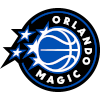
Scott Skiles, 14th season, first with Orlando
Rotation trends over last 1-5 seasons as head coach: 30+ mpg: 2.8 players per season, 24+ mpg: 6.4 players per season
Most minutes in 2014-15:Victor Oladipo (35.7 mpg)
Offensive trends over last 1-5 seasons as head coach: Pace: 92.5, 3Pt FG attempted per game: 19.2.
Projected movement:Up
This is as clean as the Magic's starting five has looked on paper in quite some time. With Aaron Gordon seemingly poised to make a significant leap and no legitimate challenger to Elfrid Payton for big minutes at the one, the lineup of Payton, Victor Oladipo, Tobias Harris, Gordon and Nikola Vucevic should start and finish most games this season, with all five theoretically being in the mix for 30-plus mpg. Skiles' history as a coach is to run deep rotations where he only favors two or three players to the point where they receive a true starter's workload. However, he seems to have been handed a roster where that deployment technique would make very little sense. Evan Fournier, Mario Hezonja and Channing Frye should all see 20-plus mpg off the bench, and Fournier, specifically, could come close to last year's 28.6 mpg, which would make him viable in many formats. That said, there should be a clear hierarchy here, where the starters are treated as such and fantasy owners should be able to invest in them with confidence. Payton, Oladipo, Harris and Vucevic all saw 30-plus mpg last season, and Gordon has a legitimate chance to join them.

Randy Wittman, 10th season, fifth with Washington
Rotation trends over last 1-5 seasons as head coach: 30+ mpg: 2.6 players per season, 24+ mpg: 6.2 players per season
Most minutes in 2014-15:John Wall (35.9 mpg)
Offensive trends over last 1-5 seasons as head coach: Pace: 92.7 (93.7 last season, league rank - 18th), 3Pt FG attempted per game: 17.5 (16.8 last season, league rank - 27th).
Projected movement: Holding Steady
There is no reason to think anything will change from last year to this year, with John Wall and Bradley Beal both easily surpassing 30 mpg, Marcin Gortat hanging right around that plateau and Nene Hilario falling about five mpg short of 30. The only notable change is that Paul Pierce is no longer holding down the small forward spot. Otto Porter will be given the starting job at the three in his third season in the league, but there is not much in his numbers from last season to suggest he will be even an average option there. If Porter proves to be mediocre in his first year as a significant part of the rotation, the minutes on the wing will be in flux all season, with Jared Dudley, Martell Webster and Alan Anderson all getting in the mix. While Porter has the raw potential to be an across-the-board contributor, the downside suggests that he should be taken in the later rounds of drafts or not at all. In most leagues Wall, Beal and Gortat will probably be the only real fantasy difference makers in the nation's capital this season.

Jason Kidd, third season, second with Milwaukee
Rotation trends over last 1-5 seasons as head coach: 30+ mpg: 2.5 players per season, 24+ mpg: 3.5 players per season
Most minutes in 2014-15:Brandon Knight (32.5 mpg)
Offensive trends over last 1-5 seasons as head coach: Pace: 92.8 (94.1 last season, league rank - 13th), 3Pt FG attempted per game: 20.9 (18.3 last season, league rank - 26th).
Projected movement:Up
On the surface, the Bucks look like one of those teams where the five starters will all see 30-plus mpg. After all, Michael Carter-Williams, Khris Middleton and Giannis Antetokounmpo all eclipsed that mark last season, and Jabari Parker was at 29.5 mpg before his injury. Throw in Greg Monroe, whom they maxed out this summer, and it seems like one of the best young starting fives in basketball. However, with Parker coming back from a serious knee injury, there seems to be a realistic chance that he actually averages fewer mpg in his second season, as Antetokounmpo and John Henson can both play alongside Monroe in the frontcourt to spell Parker. The Bucks also upgraded their backup point guard situation in acquiring Greivis Vasquez, which could mean a dip for Carter-Williams. The Bucks are likely looking for Carter-Williams to have put the work in during the offseason to improve upon certain aspects of his game, most notably his jump shot. If he comes into camp an improved version of his 2014-15 self, Kidd should reward him with another season above 30 mpg. However, if he is the same player he was last season, the Bucks will have no problem giving him around 28 mpg and Vasquez around 24. Parker and Carter-Williams are the question marks for the 30-mpg club and Middleton, Antetokounmpo and Monroe are the shoo-ins, but all five should offer plenty of value in all formats this season.

Frank Vogel, sixth season, all with Indiana
Rotation trends over last 1-5 seasons as head coach: 30+ mpg: 2.4 players per season, 24+ mpg: 5.8 players per season
Most minutes in 2014-15:George Hill (29.5 mpg)
Offensive trends over last 1-5 seasons as head coach: Pace: 92.3 (93.2 last season, league rank - 19th), 3Pt FG attempted per game: 19.2 (21.2 last season, league rank - 18th).
Projected movement:Slightly Down
Last season's minutes distribution looked eerily similar to what fantasy owners have become accustomed to seeing out of Gregg Popovich in San Antonio, as not a single player averaged 30-plus mpg. This was a disaster for fantasy owners, as extracting consistent fantasy value from players on that roster was an extremely tall order. With Paul George coming back and Monta Ellis coming in, brighter days are right around the corner for fantasy owners. Both George and Ellis average over 30 mpg for their careers, and they will greatly outpace the rest of the team in minutes this season. However, after those two, the Pacers' roster is a barren wasteland for those looking for fantasy options. George Hill will once again be a very low-end starting point guard, and C.J. Miles will be similarly bland on the wing. Indiana may have the worst collection of big men in the league, and while Jordan Hill is the only one with the potential to be useful, his shortcomings on defense will make it hard for him to see big minutes under Vogel.

Gregg Popovich, 20th season, all with San Antonio
Rotation trends over last 1-5 seasons as head coach: 30+ mpg: 1.6 players per season, 24+ mpg: 5.0 players per season
Most minutes in 2014-15:Kawhi Leonard (31.8 mpg)
Offensive trends over last 1-5 seasons as head coach: Pace: 93.6 (93.8 last season, league rank - 17th), 3Pt FG attempted per game: 21.6 (22.5 last season, league rank - 15th).
Projected movement:Slightly Up
The man, the myth, the legend. No coach has done more to earn a reputation as a fantasy basketball negator than Popovich. What makes him excellent in real life makes him a thorn in the side of those who hope for his players to succeed in the art of compiling reliable statistics from one game to the next. Kawhi Leonard (31.8 mpg), Tim Duncan (28.9 mpg) and Tony Parker (28.7 mpg) will all end up in the Hall of Fame one day (assuming Leonard stays relatively healthy), so they have the juice to remain useful in almost all formats despite Popovich's progressive usage patterns. LaMarcus Aldridge is in his prime and may go down as one of the 10 or 12 best players of this decade, so he should also have no problem producing at a high level under Pop, but after those four players, it's hard to pinpoint a player who will get enough run to be viable in standard formats. Even after Leonard and Aldridge each crack 30-plus mpg this season, Popovich's spot as the worst coach for fantasy basketball owners will be secure thanks to more than a half decade of excellence in playing time management.
Fifth Tier: First-Year Coaches

Fred Hoiberg, first season
Projected players to average at least 30 mpg: 3.0
It seems pretty safe to assume that Hoiberg will serve as something of an anti-Thibodeau. The former Bulls coach had often clashed with his bosses over how to go about deploying players, with management wanting Thibodeau to rest players more and hold others under a specified number of minutes per game when they were recovering from injury. With Thibodeau gone, management will now get its wish, with players like Derrick Rose, Jimmy Butler and Joakim Noah being deployed in the manner that more forward-thinking organizations would operate. This may seem like it could hurt the fantasy value of these players, but on the contrary, it seems likely that the Bulls will deal with fewer injuries, which should offset any losses on a minutes-per-game level. This will also be good news for players like Nikola Mirotic, Tony Snell and Doug McDermott, who struggled to see enough minutes to be fantasy viable last season because Thibodeau was such a dictator with his rotations. Hoiberg will probably look to run a Warriors-style rotation, where only two or three players see 30-plus mpg but six or seven players see enough minutes to be viable in deeper leagues.
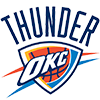
Billy Donovan, first season
Projected players to average at least 30 mpg: 4.0
Donovan doesn't have any strong ties to current or former NBA coaches, unless one counts Rick Pitino, and that was almost 20 years ago. Defensive intensity has been a theme of Donovan's teams over the years, specifically forcing turnovers and limiting opponents' three-point attempts. Russell Westbrook should thrive in a scheme like that, and he could be poised to set a career-high in steals per game. Serge Ibaka also seems like a perfect Donovan player -- a rim-protector on defense and someone with a versatile offensive game. Of course, players like Westbrook, Ibaka and Kevin Durant are going to put up awesome numbers in any system, so this isn't really about them. It will be hard for Donovan not to best Scott Brooks in every area, but one area in particular where he should run laps around Brooks is the development and deployment of younger players who haven't quite put it all together at the NBA level. Dion Waiters, Enes Kanter, Mitch McGary and Steven Adams fit into this category. They are all young, but they also all have something to offer a team that is in win-now mode. That is not to say Donovan will make all four of these guys into quality two-way players, but he will be able to maximize their strengths and hopefully limit the damage players like Waiters and Kanter can cause on the defensive end. Essentially, I'm predicting that nearly every key player on the Thunder has the most efficient year of their respective careers. That won't necessarily mean that someone other than Westbrook/Durant/Ibaka/Kanter gets enough minutes to be a viable fantasy option in standard leagues, but if an injury occurs, the Thunder should be better prepared to have someone else step in and produce.








